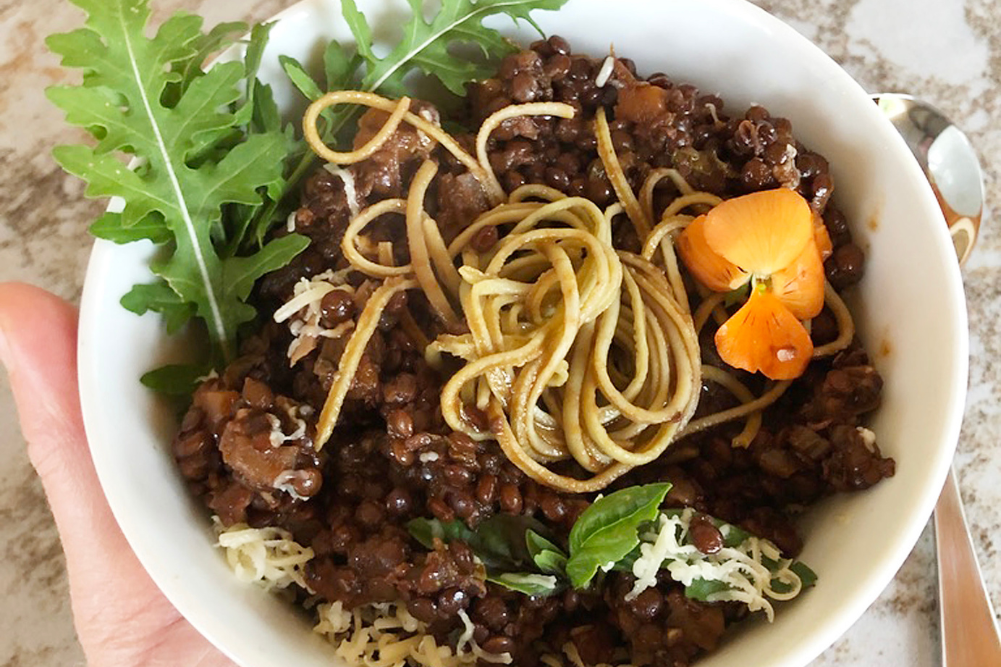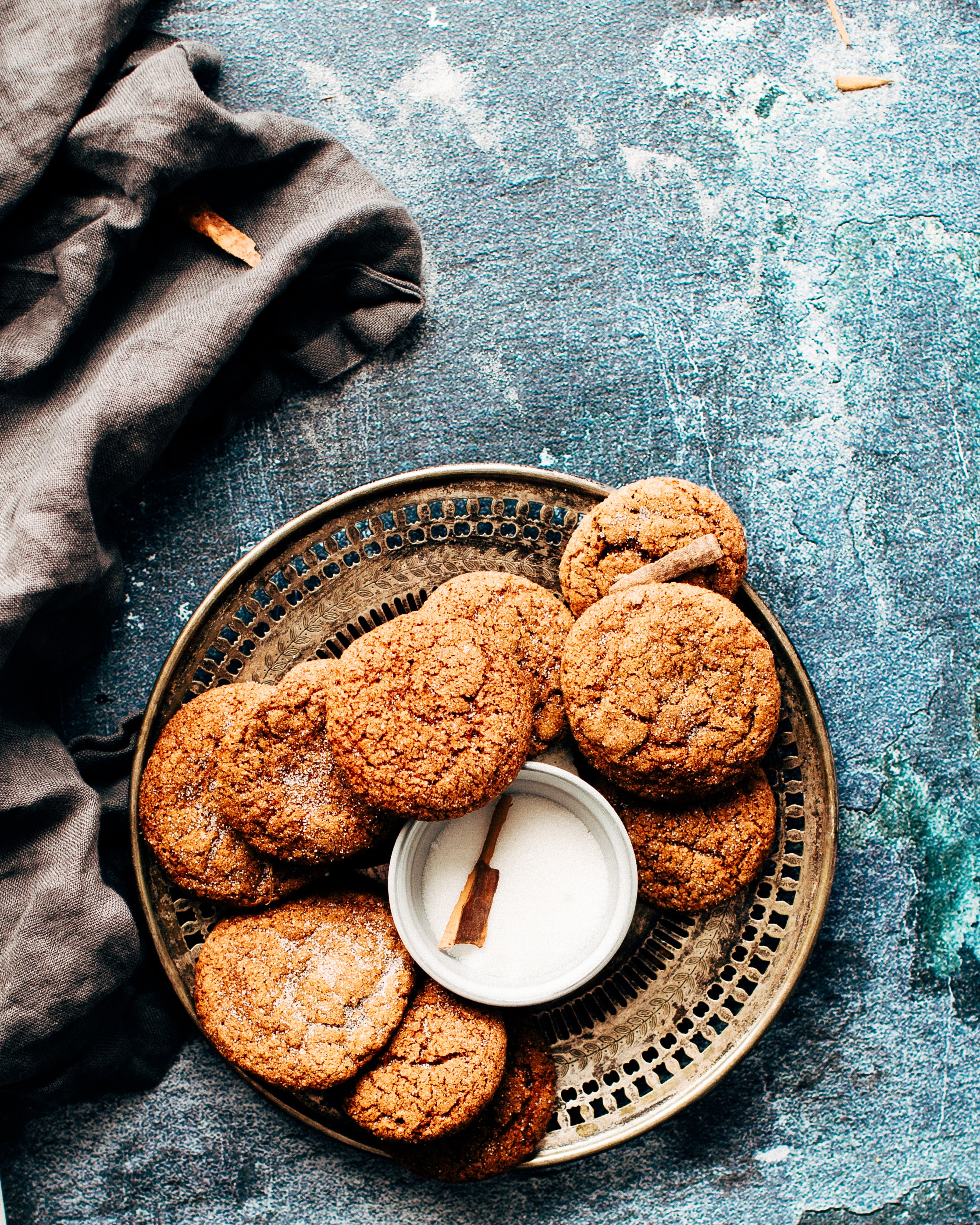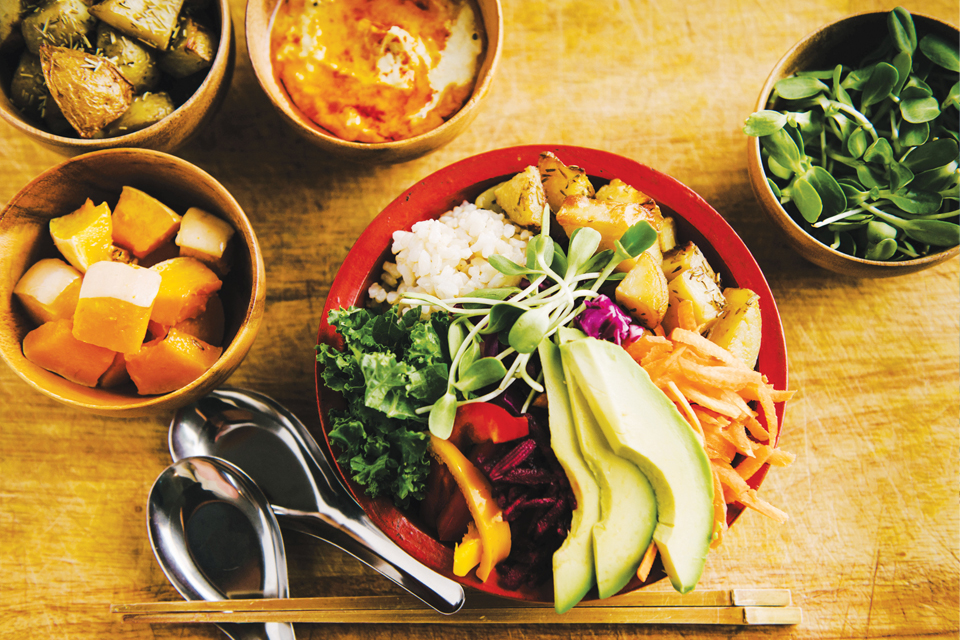An interview with mindful and intuitive eating chef Jenny Lomas
What does being calm in the kitchen mean to you?
Being calm in the kitchen is perhaps one of the most important yet underrated competencies of a cook. Having a calm state of mind means being present, not distracted. Being calm means we can prepare our meals efficiently and to the best of our capabilities, and respond skilfully when our plan for dinner gets derailed by some missing ingredient or by our mistaking sugar for salt. However, it doesn’t necessarily mean slowing down our movements and tip-toeing around — after all, people are hungry and we need to use our energy to get food on the table!
For most of us, whether we are calm (or not) in the kitchen is simply a continuation of whether we are calm (or not) in other situations. We can practise being calm when cooking and we will find over time that we are also calm when shopping, doing the school run and practising meditation or yoga. And vice versa.
Some people find cooking stressful and there may be specific grounds for this — self-judgement, or a real or perceived lack of skill and/or resources, for example.
What are your favourite ways to practise intuitive eating?
Simply by asking myself, “What do I want to eat right now?” and listening carefully for an answer to emerge. The intuitive answers I get tend to be headlines, not specifics. Something like … let’s eat something light; warm and spicy; lots of greens; comforting; anything as long as it’s on the table in 10 minutes. Very often my intuitive body just reminds me to drink water.
The most beneficial practice is to let go of all the rules — for example, eating six servings of fruit and vegetables a day, not eating after a certain time, limiting fat (or sugar or carbs), not eating on the run — forget it all. The rules are that there are no more rules. (Until, intuitively, you decide to instigate some rules, of course.)
A combination of mindfulness and intuition will also let you know when you are full. Save leftovers for another meal, or with a heart of generosity give them to the compost or the worm farm.
Extra contemplations:
I am aware that not everyone has a well-developed intuitive sense. It is very easy for people to confuse what they crave, especially in the beginning, with what the wisdom-body needs. Especially when we are rundown and have any level of gut-dysbiosis, our gut-brain axis is active with all kinds of unhelpful cravings — the more of the putrefactive bacteria in our guts, the more messages we receive craving sugar and refined carbohydrates, for example. But even in that situation, if you have keen intuition, you can know what you really need.
The wellness industry generally loves slogans such as “follow your heart” but, for many of us, unless we have trained our hearts to some degree, we will just keep seeking pleasure, which is something else entirely …
Why are mindfulness and intuition so important to a healthy relationship with food?
As described earlier, mindfulness and intuition are what allow a relationship with food to develop, and this in turn has huge potential for our wellbeing — our health and vitality, our joy, connection and our self-agency.
I like to think of my relationship to food more as a flowing conversation, rather than a set of conclusions. The way I eat has changed a lot over the years and this is not because I have studied more, but because I am a human being in flux, living in a world of ever-changing circumstances. The more I enter into the conversation — with awareness and an open mind — the healthier my relationship to food becomes and the better I feel in body and mind.
Some other areas that I’d like to highlight:
Being mindful of “food miles” and the lower nutritional value of imported fruits and vegies, I stick to local, seasonal produce. If that means no asparagus for 10 months of the year, then I’m happy with that! This helps loosen my attachment to certain foods and brings joy every season as there is always something new appearing.
We are all feeling the pinch right now regarding rising food prices and the cost of living generally. Gone from my shopping list are the superfoods and specialist ingredients, and I am very mindful of the literal value of a bag of groceries — food is precious, but in times of affluence we can easily overlook that. Everyone I know is rationing their cafe visits — we cherish them all the more.
Intuitively, I cook much more simply now than I did earlier in my career as a chef. I realise that I was often trying to impress people with culinary wizardry, and now I think, if you can’t be impressed by hazelnuts, apricots or honey from the neighbour’s beehive, then that’s on you — not me! When I eat mindfully, every ingredient just leaves me in awe. That cherries even exist?! I am floored with gratitude. However, I also don’t judge myself for my previous efforts in creating complex recipes and works of food art. Ssimply, everything changes.
Bringing mindfulness and our intuitive capabilities to our food is empowering. How can any other person know our bodies better than us? (Aside from situations of critical or chronic illness, where we may need specialist advice.) If intuitively you feel you would like to make some changes, then step by step try some new things out with curiosity — trusting your own sense of what feels right — and see your health improve.
Feeling good about my food choices means not ignoring the ethical elements, which may not be immediately obvious. This is an area of growing concern, prompting more transparency from the ethical food producers and leaving me wondering about the rest of them. Modern human slavery in some areas of the cacao/cocoa industry is one example. Having recently switched brands, my chocolate habit is now truly guilt-free. The products we buy can make a huge impact. Perhaps intuitively you are concerned about the provenance of a food you buy regularly — take some time to do a little research.
What is the biggest lesson you’ve learned about mindful and intuitive eating?
You don’t need to fit your diet neatly into anyone else’s categories. Find what works for you, at this time. If you want to give up fish and eggs, go for it. If you want to make sourdough bread, go for it. Try paleo, or not. Let all these ideas come and go. Have fun, enjoy your food and allow others to do the same!
Do you have any recipes that naturally lend themselves to mindfulness and intuitive eating?
Any/all recipes are just as good as each other for mindfulness and intuitive eating, including something you microwave!
Anything else you’d like to share?
Both the concepts discussed, mindfulness and intuitive eating, are liberating ideas. Neither should feel like yet another wellbeing practice to fit in to your busy day. Far from slowing you down or giving you something else to “get right”, these concepts can make you feel liberated, empowered and energised. Enjoy reading about these concepts, then let them go. All that I hope remains is the energy of curiosity, kindness, openness and self-love. Sense into what is true and alive for you now. Go forward with ease and peace … and enjoy your food.




